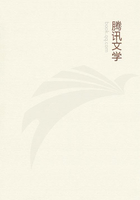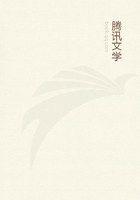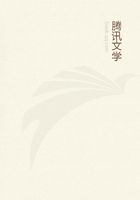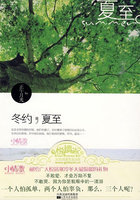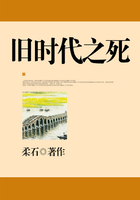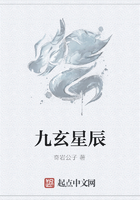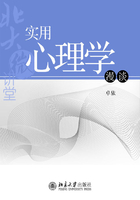`Wha last beside his chair shall fa' He is the king amang us three!'
It was the Princess Dashkoff who said, in the latter part of the eighteenth century, that of all the societies of men of talent she had met with in her travels, Edinburgh's was the first in point of abilities.
One might make the same remark to-day, perhaps, and not depart widely from the truth. One does not find, however, as many noted names as are associated with the annals of the Cape and Poker Clubs or the Crochallan Fencibles, those famous groups of famous men who met for relaxation (and intoxication, I should think) at the old Isle of Man Arms or in Dawney's Tavern in the Anchor Close. These groups included such shining lights as Robert Fergusson the poet, and Adam Ferguson the historian and philosopher, Gavin Wilson, Sir Henry Raeburn, David Hume, Erskine, Lords Newton, Gillies, Monboddo, Hailes, Kames, Henry Mackenzie, and the Ploughman Poet himself, who has kept alive the memory of the Crochallans in many a jovial verse like that in which he describes Smellie, the eccentric philosopher and printer:-`Shrewd Willie Smellie to Crochallan came, The old cocked hat, the grey surtout the same, His bristling beard just rising in its might;
`Twas four long nights and days to shaving night'; or in the characteristic picture of William Dunbar, a wit of the time, and the merriest of the Fencibles:-`As I cam by Crochallan I cannily keekit ben;
Rattlin', roarin' Willie Was sitting at yon boord en';
Sitting at yon boord en', And amang guid companie!
Rattlin', roarin' Willie, Ye're welcome hame to me!' or in the verses on Creech, Burns's publisher, who left Edinburgh for a time in 1789. The `Willies,' by the way, seem to be especially inspiring to the Scottish balladists.
`Oh, Willie was a witty wight, And had o' things an unco slight!
Auld Reekie aye he keepit tight And trig and braw;
But now they'll busk her like a fright--Willie's awa'!'
I think perhaps the gatherings of the present time are neither quite as gay nor quite as brilliant as those of Burns's day, when `Willie brewed a peck o' maut, An' Rob an' Allan cam to pree'; but the ideal standard of those meetings seems to be voiced in the lines:-`Wha last beside his chair shall fa', He is the king amang us three!'
As they sit in their chairs nowadays to the very end of the feast, there is doubtless joined with modern sobriety a soupcon of modern dulness and discretion.
To an American the great charm of Edinburgh is its leisurely atmosphere: `not the leisure of a village arising from the deficiency of ideas and motives, but the leisure of a city reposing grandly on tradition and history; which has done its work, and does not require to weave its own clothing, to dig its own coals, or smelt its own iron.'
We were reminded of this more than once, and it never failed to depress us properly. If one had ever lived in Pittsburg, Fall River, or Kansas City, I should think it would be almost impossible to maintain self-respect in a place like Edinburgh, where the citizens `are released from the vulgarising dominion of the hour.'
Whenever one of Auld Reekie's great men took this tone with me, I always felt as though I were the germ in a half-hatched egg, and he were an aged and lordly cock gazing at me pityingly through my shell. He, lucky creature, had lived through all the struggles which I was to undergo; he, indeed, was released from `the vulgarising dominion of the hour'; but I, poor thing, must grow and grow, and keep pecking at my shell, in order to achieve existence.
Sydney Smith says in one of his letters, `Never shall I forget the happy days passed there [in Edinburgh], amidst odious smells, barbarous sounds, bad suppers, excellent hearts, and the most enlightened and cultivated understandings.' His only criticism of the conversation of that day (1797-1802) concerned itself with the prevalence of that form of Scotch humour which was called wut; and with the disputations and dialectics. We were more fortunate than Sydney Smith, because Edinburgh has outgrown its odious smells, barbarous sounds, and bad suppers and, wonderful to relate, has kept its excellent hearts and its enlightened and cultivated understandings. As for mingled wut and dialectics, where can one find a better foundation for dinner-table conversation?
The hospitable board itself presents no striking differences from our own, save the customs of serving sweets in soup-plates with dessert-spoons, of a smaller number of forks on parade, of the invariable fish-knife at each plate, of the prevalent `savoury' and `cold shape,' and the unusual grace and skill with which the hostess carves. Even at very large dinners one occasionally sees a lady of high degree severing the joints of chickens and birds most daintily, while her lord looks on in happy idleness, thinking, perhaps, how greatly times have changed for the better since the ages of strife and bloodshed, when Scottish nobles `Carved at the meal with gloves of steel, And drank their wine through helmets barred.'
The Scotch butler is not in the least like an English one. No man could be as respectable as he looks, not even an elder of the kirk, whom he resembles closely. He hands your plate as if it were a contribution-box, and in his moments of ease, when he stands behind the `maister,' I am always expecting him to pronounce a benediction.
The English butler, when he wishes to avoid the appearance of listening to the conversation, gazes with level eye into vacancy; the Scotch butler looks distinctly heavenward, as if he were brooding on the principle of co-ordinate jurisdiction with mutual subordination. It would be impossible for me to deny the key of the wine-cellar to a being so steeped in sanctity, but it has been done, I am told, in certain rare and isolated cases.

